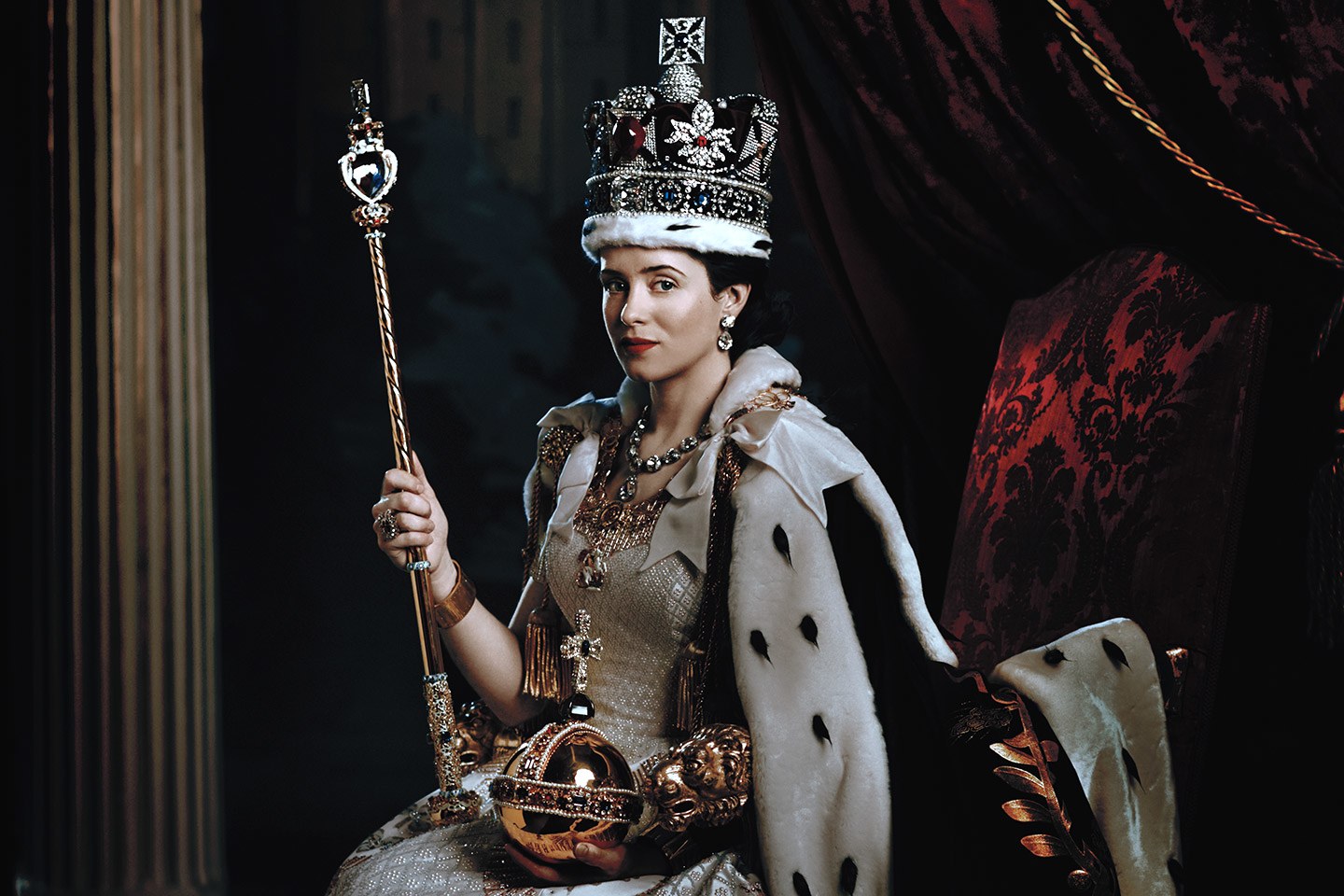The Crown returned, and while there is less pomp and circumstance, there’s still plenty of scandal.
Season 2 of Netflix’s juggernaut hit, chronicling the lives and loves of the British royal family, landed on the streaming service in December, just in time for the holiday season. The 10 episodes covered plenty of ground, as the show marched briskly through from 1957 to 1964, neatly wrapping up the Profumo Affair, the Kennedy assassination, and the Suez Crisis, along with the usual family drama fare of babies, cheating husbands, and distant Nazi relatives.
Season 2 of Netflix’s juggernaut hit, chronicling the lives and loves of the British royal family, landed on the streaming service in December, just in time for the holiday season. The 10 episodes covered plenty of ground, as the show marched briskly through from 1957 to 1964, neatly wrapping up the Profumo Affair, the Kennedy assassination, and the Suez Crisis, along with the usual family drama fare of babies, cheating husbands, and distant Nazi relatives.
The first season has been justly accused of coming close to monarchist propaganda; humanising and sympathising with the royal family, in a move designed to appeal predominantly to international audiences. In contrast, I made it a full 45 minutes into season 2 before I was tempted to stage a full-blown revolution, for the sheer pleasure of mildly inconveniencing Prince Philip.
Philip (Matt Smith), whose self-centred, self-pitying antics had been mildly annoying in the first season, was given a much larger role this time around. Whole episodes were devoted to his philandering, and his utter unconcern for his wife, his children, or the responsibilities of his post featured frequently. The show did its level best to present him as sympathetic, emphasising his unhappy childhood, but no amount of dead Nazi sisters was sufficient to justify his total inability to treat his wife with any decency.
This, unfortunately, left a vacuum at the heart of the show; it was difficult to be interested in his struggles when they were entirely caused by his own selfishness and pride. Moreover, it was almost painful to watch the royal couple fighting their way towards an exhausted stalemate, rather than anything resembling happiness. This resulted in whole episodes that felt flat and repetitive, engendering little response beyond an endless feeling of frustration and disappointment.
Clare Foy, who once again put in a stellar performance as Queen Elizabeth, at times seemed to fade into the background behind her husband. This was a real shame given that this will be the last time we see her diffidence and precision in the role (Olivia Coleman will be taking up the mantle, literally, from the next season). She particularly shone in the season’s sixth episode ‘Vergangenheit’, which dealt with the Duke of Windsor’s well-documented support for the Nazis. It was in her struggle with her own faith, and with what it means to forgive those who betray us, that The Crown was most successful in its avowed aim of exploring the real person, Elizabeth, behind the public façade of the Queen.
The season’s other standout was Matthew Goode, a newcomer to the show who played Princess Margaret’s husband, bisexual photographer Antony Armstrong-Jones. Disarmingly handsome, he roared excitingly around on a motorbike and smouldered wordlessly in darkrooms, entertainingly disdainful of the royal family and the institution of monogamy in equal measure. It was no surprise that the Princess Margaret rushed headlong into an ill-advised marriage, the cracks in which were already beginning to show by the season’s end.
The Crown lived up to its reputation for high production values; the costuming, in particular, was spectacular. Yet, the otherwise incredibly well-made drama was badly let down by overwrought, unimaginative music choices, that too-often seemed hackneyed rather than sophisticated. In particular, using Handel’s Zadok the Priest to soundtrack the Queen’s haircut was a fairly egregious error, which pushed the show from merely self-important into something approaching parody.
Nevertheless, in some ways, it was a treat to see the season eschew the first season’s ceremonial grandstanding for the more intimate drama of unhappy marriages, bad parenting, and ill-fated love affairs. But the closer we got to these characters, the less I could care for them; the Queen Mother was an unforgivable snob, Princess Margaret was astonishingly oblivious, and Prince Philip was a prideful philanderer, whose chauvinistic inability to play second-fiddle to his admirable wife wreaked devastation on all around him. Viva la Revolution!

